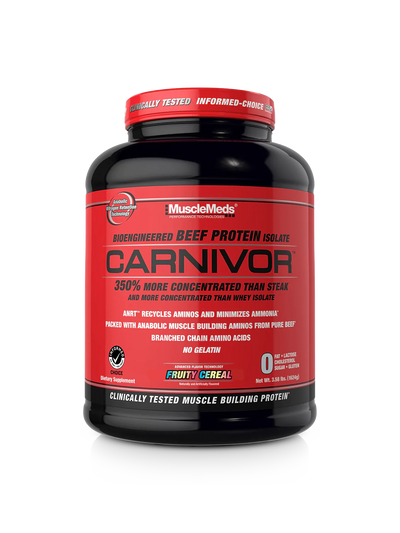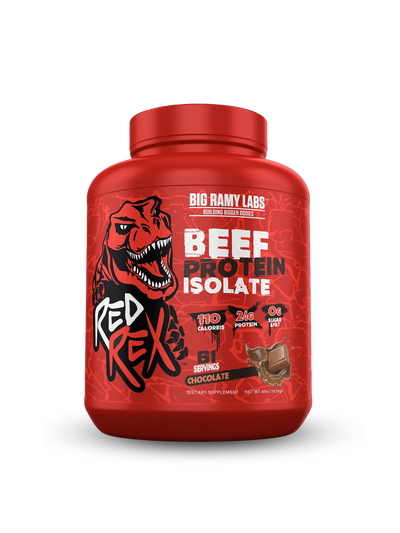Introduction
In the realm of nutrition, where protein reigns supreme as the cornerstone of a balanced diet, one source has been quietly rising in prominence: beef protein. While discussions often center around familiar options like chicken, fish, and plant-based alternatives, the robust nutritional profile and unique attributes of beef protein deserve a spotlight of their own.
Packed with essential amino acids and a plethora of health benefits, beef protein offers a tantalizing option for those seeking to fuel their bodies with a high-quality protein source. In this article, we'll delve into the world of beef protein, uncovering its nutritional significance, exploring its advantages, and shedding light on why it's increasingly capturing the attention of nutrition enthusiasts and fitness aficionados alike.
The Nutritional Powerhouse: Beef Protein
At the forefront of nutritional excellence, beef protein stands as a true powerhouse. Boasting an exceptional array of essential amino acids, it delivers a complete protein profile that fuels various vital functions within our bodies. This protein source is particularly revered for its role in muscle repair, immune system fortification, and hormone synthesis.
Its robust presence of branched-chain amino acids (BCAAs) further enhances its appeal, making it a go-to option for individuals striving to bolster their muscle recovery and growth. Beyond its protein content, beef protein offers a holistic nutritional package, including crucial nutrients like iron, zinc, B-vitamins, and even collagen.
With this comprehensive nutrient ensemble, beef protein emerges not only as a force in promoting physical strength but also as a catalyst for overall well-being.
Key Benefits of Beef Protein
- Complete Amino Acid Profile: Beef protein is considered a complete protein source, containing all nine essential amino acids that the body cannot produce on its own. This completeness makes it an ideal choice for supporting muscle growth, repair, and various physiological processes.
- Muscle Building and Recovery: With a rich concentration of branched-chain amino acids (BCAAs), including leucine, isoleucine, and valine, beef protein plays a pivotal role in enhancing muscle protein synthesis. This makes it an invaluable asset for individuals engaged in physical activities that demand muscle recovery and development.
- Sustained Release of Amino Acids: Unlike some rapidly absorbed protein sources, beef protein offers a sustained release of amino acids into the bloodstream. This gradual release provides a steady supply of building blocks for muscle repair and growth over an extended period, supporting better long-term recovery.
- Nutrient Density: Beyond protein, beef is loaded with essential nutrients such as iron, zinc, B-vitamins (like B12 and B6), selenium, and phosphorus. These nutrients are vital for energy production, immune function, cognitive health, and the overall maintenance of various bodily systems.
- Versatility: Beef protein can be incorporated into a wide range of dishes, from lean cuts for grilling to ground beef for stews and casseroles. This versatility allows for creativity in meal planning while benefiting from the nutritional advantages it offers.
- Collagen Content: Beef contains collagen, a protein critical for maintaining the health of connective tissues, skin, hair, and joints. Including beef protein in your diet can contribute to improved joint function, skin elasticity, and overall well-being.
- Satiety and Weight Management: Protein-rich foods are known for their satiating effect, helping to curb hunger and reduce overall calorie intake. Incorporating beef protein into your meals can contribute to a sense of fullness and aid in weight management efforts.
- Unique Flavor and Texture: Beef protein brings a distinctive flavor and texture to dishes, making it an enjoyable addition to various cuisines and cooking styles.
- Nutritional Synergy: The combination of protein, essential nutrients, and healthy fats in beef creates a nutritional synergy that supports various bodily functions, from cellular repair to hormone regulation.
Comparing Beef Protein to Other Sources
To understand the benefits of beef protein fully, it's essential to compare it with other protein sources:
- Chicken: While both beef and chicken are high-quality protein sources, beef provides a more diverse micronutrient profile. Additionally, the higher fat content in beef can be beneficial for individuals with specific dietary needs.
- Plant-Based Proteins: Beef protein is a complete protein source, meaning it contains all essential amino acids. While plant-based proteins can be combined to achieve completeness, beef protein offers a convenient single-source solution for those seeking a diverse nutrient intake.
- Whey Protein: Whey protein is well-known for its rapid absorption, making it a popular choice post-workout. However, beef protein offers a sustained release of amino acids, which can be advantageous for extended muscle recovery and growth.

Incorporating Beef Protein into Your Diet
Integrating beef protein into your diet can be a delicious and nutritious way to enhance your protein intake and overall well-being. Here are some practical tips to help you make the most of this protein source:
- Choose Lean Cuts: Opt for lean cuts of beef to reduce saturated fat intake. Examples of lean cuts include sirloin, tenderloin, and eye of round. Trimming visible fat before cooking can further reduce the fat content.
- Balance Your Diet: While beef protein offers numerous benefits, variety is key to a well-rounded diet. Combine it with other protein sources like poultry, fish, eggs, legumes, and dairy to ensure you're getting a diverse range of nutrients.
- Cooking Methods: Use cooking methods that preserve the nutritional value of the beef. Grilling, broiling, baking, and slow cooking are excellent options that retain both flavor and nutrients.
- Meal Prep: Prepare batches of lean beef ahead of time to have protein readily available for your meals. Cooked and sliced beef can be added to salads, wraps, or stir-fries for quick and convenient meals.
- Versatile Dishes: Incorporate beef protein into a variety of dishes. Ground beef can be used in chili, tacos, and meat sauces, while lean cuts are perfect for steak salads, kebabs, and sandwiches.
- Portion Control: Pay attention to portion sizes to ensure you're consuming an appropriate amount of protein without overdoing it. A serving size of beef is typically around 3 to 4 ounces (85 to 113 grams).
- Include Vegetables: Complement your beef dishes with a variety of vegetables. This not only adds nutrients and fiber but also creates a balanced and visually appealing meal.
- Pre- and Post-Workout Meals: Lean beef can be included in both pre- and post-workout meals. Pre-workout, it provides sustained energy, while post-workout, it aids in muscle recovery and growth.
- Healthier Preparation: Experiment with healthier cooking techniques, such as marinating your beef with herbs and spices instead of heavy sauces. This enhances flavor without adding unnecessary calories or sodium.
- Grass-Fed and Organic Options: If possible, opt for grass-fed and organic beef. These options may contain higher levels of omega-3 fatty acids and certain nutrients due to the animals' natural diets.
- Homemade Beef Jerky: Make your own beef jerky by marinating lean beef slices and drying them in a dehydrator or oven. It's a convenient, portable, and protein-packed snack.
- Be Mindful of Seasonings: Be cautious with sodium-heavy seasonings or marinades. Opt for herbs, spices, and natural flavor enhancers to keep your meals wholesome.
- Monitor Your Intake: While beef protein offers numerous benefits, it's important to monitor your overall protein intake and consider your individual dietary needs and goals.









